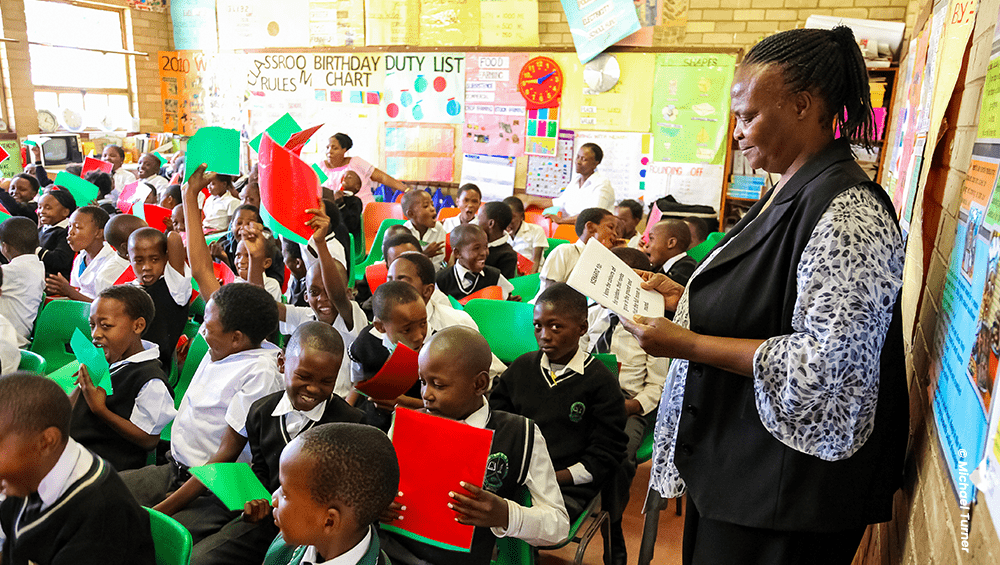GCE Statement on the Occasion of the 2022 World Teachers’ Day

The recently held Transforming Education Summit has been a milestone for the international community, reiterating the need to urgently strengthen state commitments toward the right to education for all.
The Global Campaign for Education highlights this momentum by stressing the central importance of teachers in achieving the Sustainable Development Agenda, and the 2022 World Teachers' Day is an ideal reason to renew it.
The available information shows that, unfortunately, most governments have failed to make the necessary investments in education systems or provide the support teachers desperately need to perform their roles and enjoy a decent standard of living.
According to UNESCO, globally, 69 million new teachers are required to meet the 2030 education goals, of which almost 25 million are required to serve primary school children and 44 million for secondary school. Another 28 million teachers are needed to replace their colleagues due to retirement by 2030.
This urgency is compounded by observing that teachers often lack education and training opportunities, suffer from low-income gendered salaries, must endure overcrowded classrooms, and are increasingly victims of armed conflicts, occupation, and disasters.
GCE believes that teacher shortage affects the entire planet because the construction of global citizenship based on the respect and promotion of human rights as a way of life can only be achieved by overcoming all forms of exclusion and marginalisation everywhere. However, GCE notes that teacher shortage is dramatic in specific regions and countries -with a perverse effect on students with disabilities and indigenous populations- and it is not a problem in others.
As GCE’s founding member Education International rightly states, the world must commit to increasing investment in quality public education systems, guaranteeing labour rights and good working conditions for teachers and education support personnel, and respecting teachers and their pedagogical expertise.
GCE also calls on governments and donors to invest in teacher training that enables and empowers them to create learning environments that accommodate diverse learning styles, such as Universal Design for Learning and accessible assessments.
Teachers with disabilities should also be able to serve in mainstream/regular education systems as an affirmative action to break cycles of discrimination that affect both teachers and students.
Global data reveals that the learning crisis reported daily in various media is partly due to the growing weakening of teaching work and the exclusion of teachers from participation in decision-making.
This weakening has a dramatic effect on all education processes, but mainly it reveals that rather than a learning crisis, the world is facing a crisis of inequality, in which low- and middle-income countries and early childhood, youth and adult populations that have historically been discriminated against, pay the consequences of this type of structural violence.
The Global Campaign for Education calls on the international community to urgently attend to the situation of migrant, refugee, displaced and asylum-seeking populations who lack appropriate teachers and schools and mainly demands that teachers' attention be placed at the forefront of the international development and humanitarian agendas.
The new education financing compact derived from the Transforming Education Summit must lead to adequate financing of the teaching profession as one of the emergency measures that must be adopted.
The GCE renews its solidarity with teachers and education personnel and commits to working with them in the construction of a world free of exclusion, discrimination, inequality and all forms of violence.
End


